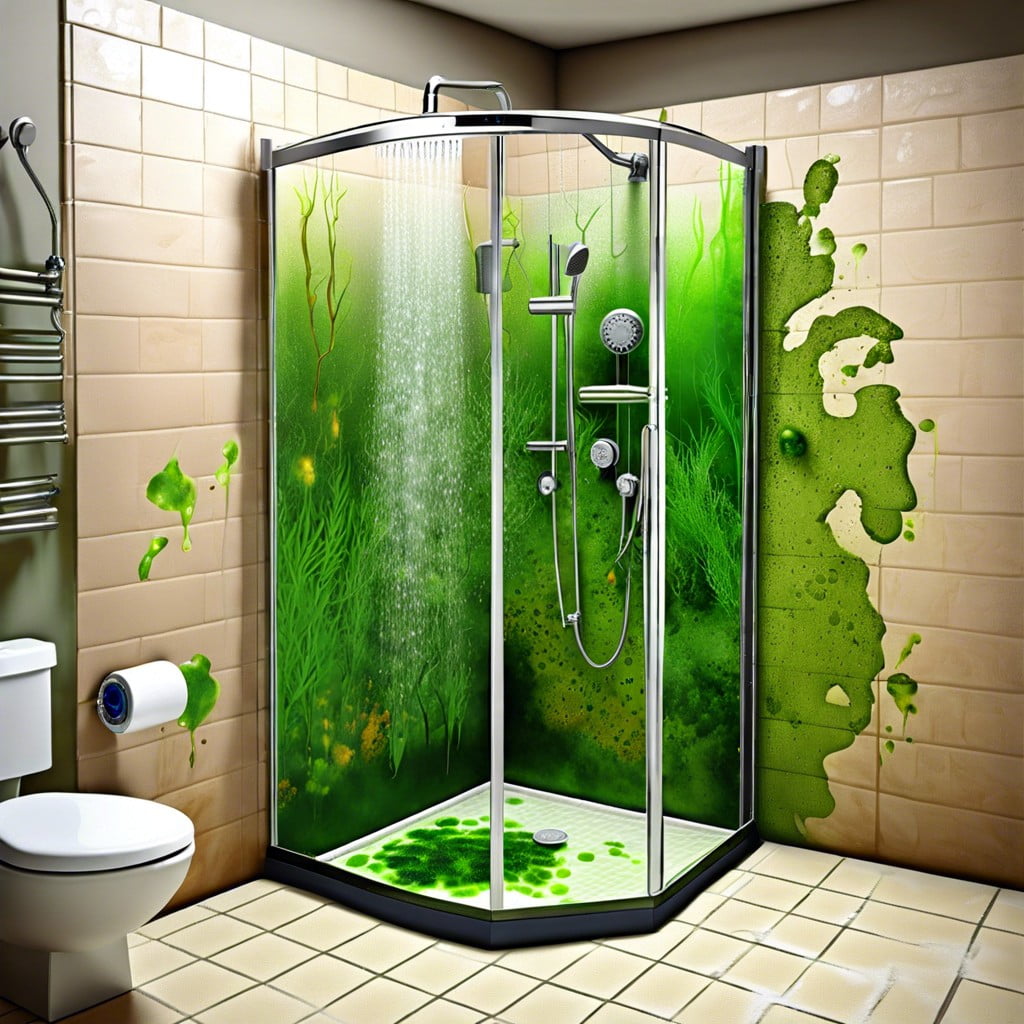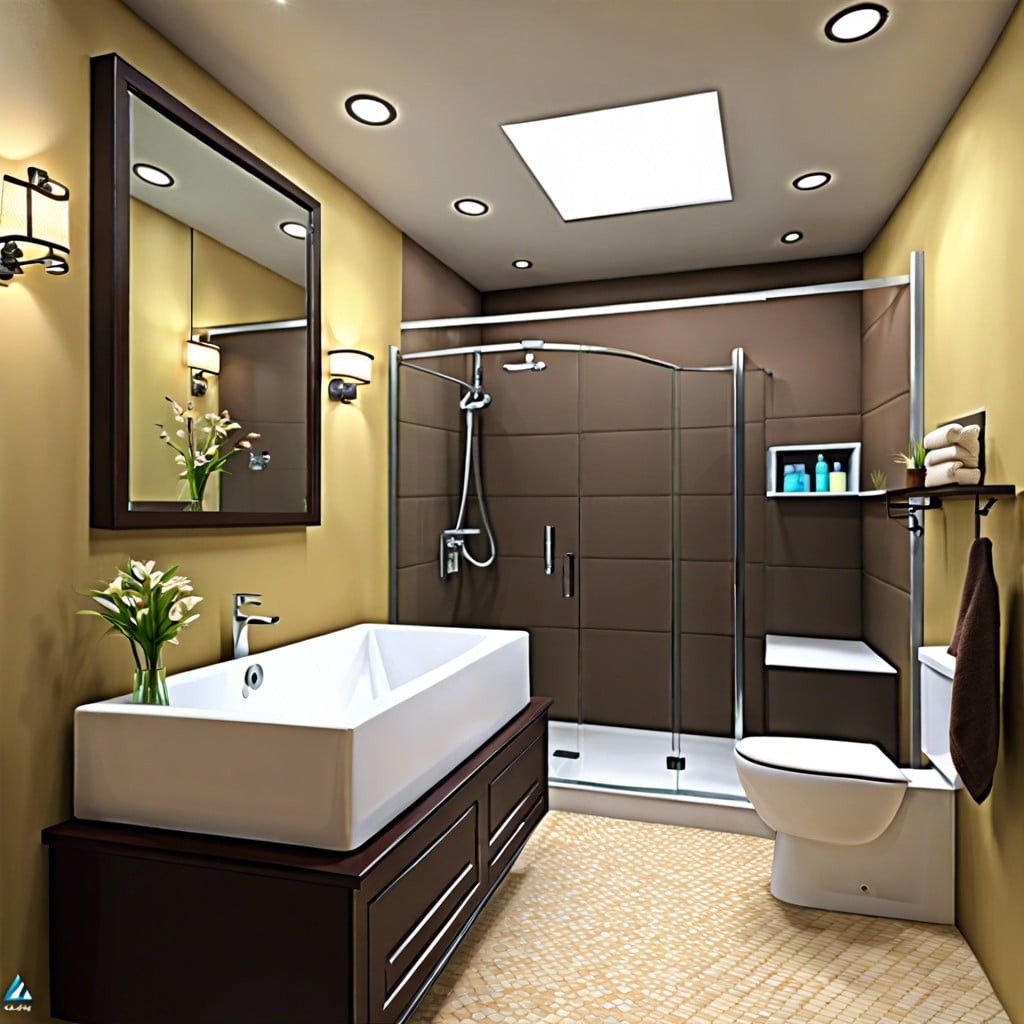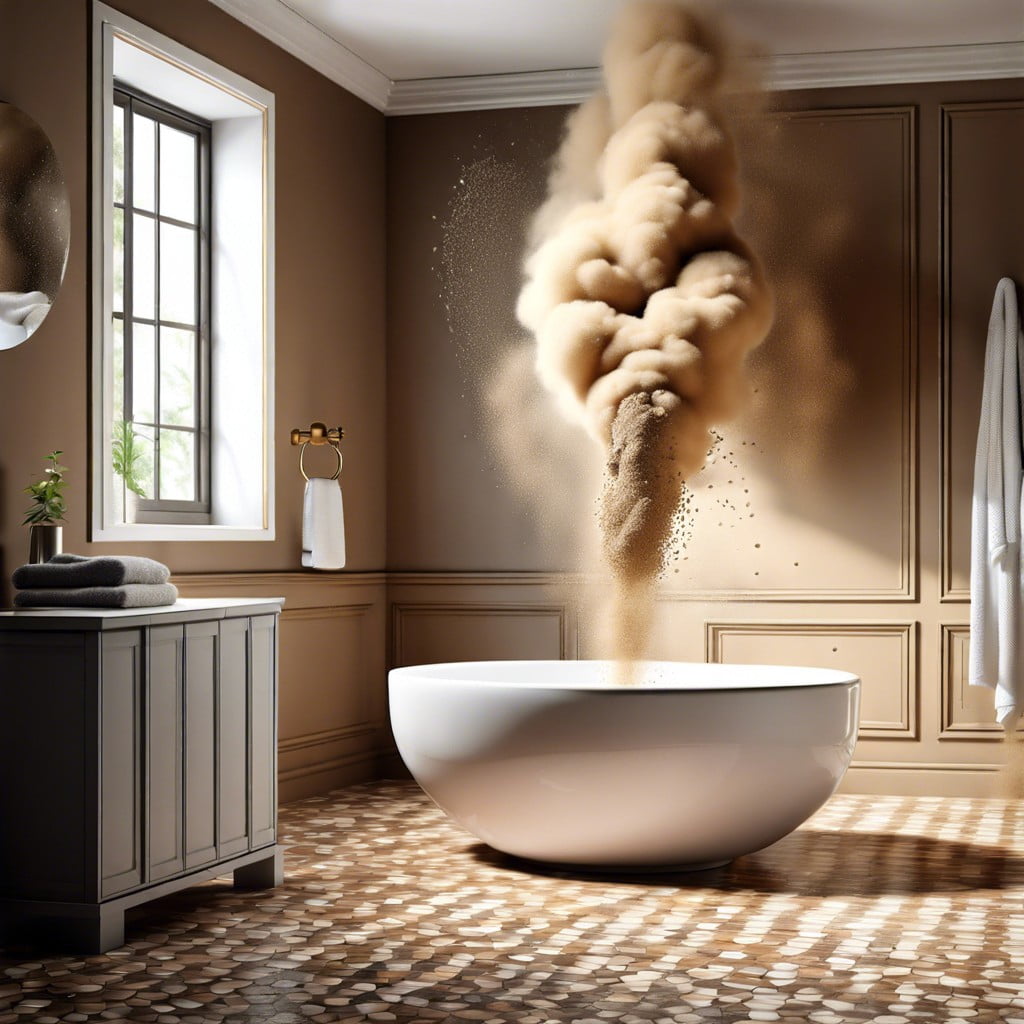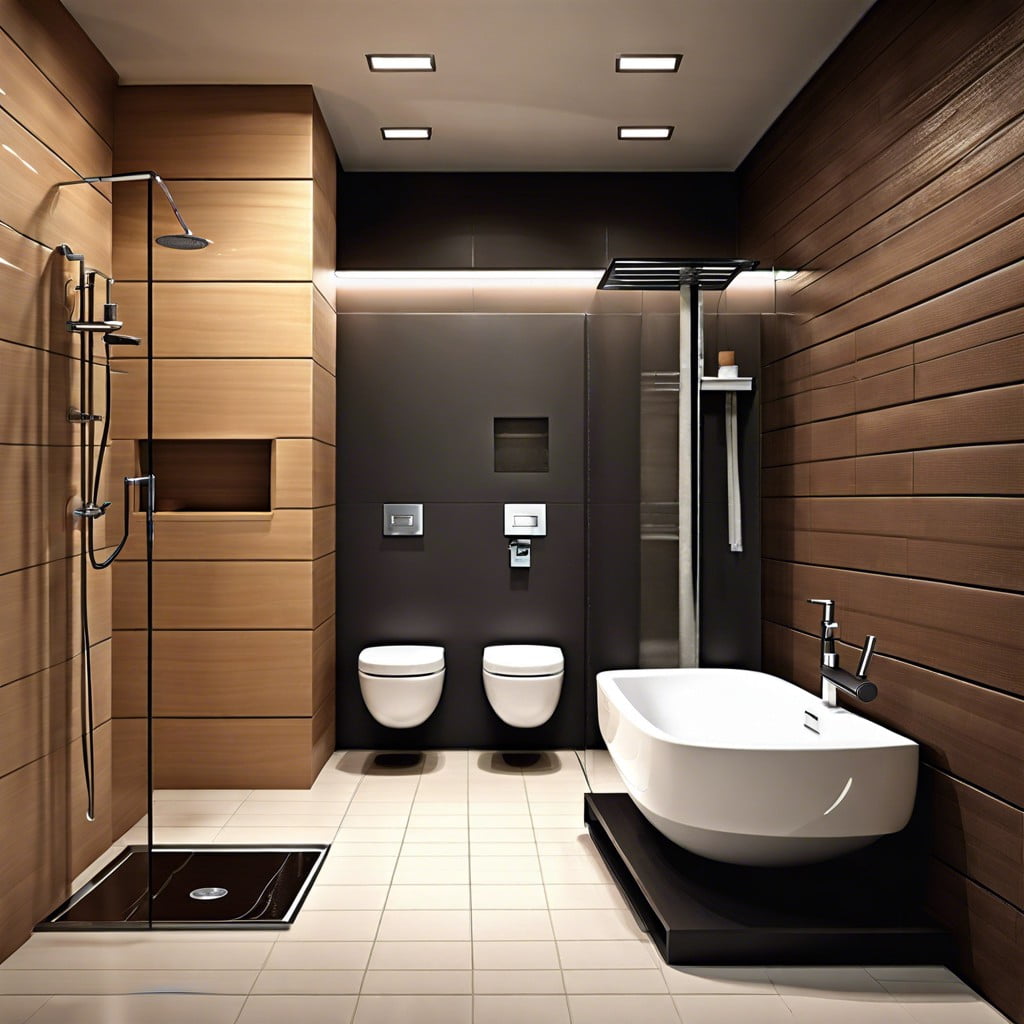Last updated on
Your shower smelling like pee could be due to bacteria or mold buildup, and we’ll help you pinpoint and fix the issue.
Key takeaways:
- Mold and mildew can make your shower smell like pee.
- Clogged drains can lead to unpleasant shower odors.
- Poor ventilation can turn your shower into a mold and mildew haven.
- Dirty shower mats can cause undesirable smells in your shower.
- Leaky pipes can create damp areas that cause foul odors.
Mildew and Mold Growth

Ah, mildew and mold, the unwanted squatters in your bathroom. These fungi love damp, dark spaces – your shower is basically their dream home. Now, why do they make your shower smell like pee? The secret lies in their spores.
First, mold and mildew release volatile organic compounds (VOCs), and some of those compounds have a pungent, urine-like odor. No, seriously, it’s not your imagination.
Second, when soap scum and body oils mix with standing water, it creates a buffet for mold and mildew. And they dine 24/7.
To keep these freeloaders at bay, make sure to air out your bathroom. Use a squeegee to wipe down shower walls and use mold-resistant shower curtains. For persistent spots, attack with a mixture of vinegar and water, and tell those spores they aren’t welcome here!
Let’s make your shower a no-spore zone, folks!
Clogged Drains
When water isn’t draining properly, all sorts of gunk can get stuck down there, leading to those unpleasant odors. Think soap scum, hair, and even bits of old shampoo all mingling together in a smelly jamboree.
First, check if the water is pooling at your feet during a shower. That’s a telltale sign. Regularly clearing out your drain with a hair catcher or a simple mix of baking soda and vinegar can work wonders.
Sometimes, you might need to get in there with a drain snake to clear out the deeper clogs. It’s not glamorous, but hey, it’s effective. For tougher cases, a plumber might be the way to go. After all, nobody wants to play detective with their nose trying to hunt down where that urine-like smell is coming from.
Poor Ventilation
Picture this: a bathroom where the moisture lingers like an unwanted guest after a party. Poor airflow can turn your shower into a mold and mildew haven. These pesky fungi thrive in damp, poorly ventilated spaces and can release an odor reminiscent of, well, a neglected public restroom.
Got a bathroom without a window? Or maybe you’ve been ignoring that noisy exhaust fan? These could be your culprits. Ventilation helps to whisk away the moisture that mold and mildew adore.
And don’t underestimate the power of opening the door. Let fresh air circulate after your shower. It’s like giving your bathroom a breath of fresh air—literally.
Dirty Shower Mats
Ah, the shower mat. That innocent-looking rubber or fabric piece under your feet can be quite the culprit in causing that undesirable smell.
Firstly, shower mats often stay damp, creating a perfect breeding ground for bacteria and mold. Over time, this can lead to some seriously funky odors.
Second, they can trap soap scum, body oils, and all sorts of small debris that slowly build up into a stinky cocktail. If we’re being honest, how often do we truly clean these mats properly?
Lastly, if you’re not drying out the mat between uses, it stays wet and warm—a paradise for those smelly microbes.
So, next time you sense a whiff of something unpleasant, don’t just look at the drain—give that shower mat a second glance and maybe a good scrub!
Leaky Pipes
Leaky pipes are like the sneaky ninjas of the plumbing world. They quietly wreak havoc behind the scenes, often making your shower smell less than spa-like. Here’s why:
First, leaks can create damp areas within your bathroom walls or floor. This dampness becomes a breeding ground for mold and bacteria, which can give off a urine-like odor.
Second, if the leak is in the drain pipe, it can mix with waste residues causing foul smells to rise up through the drain. Think of it as an uninvited guest at your bathroom party.
Lastly, leaking water might seep into hidden places like your subfloor or insulation. This trapped moisture can stagnate and start to smell pretty offensive over time.
Keep an eye out for unexplained puddles or damp areas around your shower. These could be tell-tale signs of leaky pipes, and it’s best to call in a plumber pronto before your bathroom starts smelling like the world’s worst locker room.
Biofilm Build-Up
One sneaky culprit is biofilm. Imagine a slimy, invisible monster that loves your shower as much as you do. It’s a collection of bacteria, fungi, and other microorganisms that form a communal living goo on surfaces. Gross, right?
This biofilm can nestle into showerheads, drains, and tiles. As these wily organisms thrive, they can produce some funky smells reminiscent of, well, urine. What can be done about these microscopic hobos?
First, scrub all the surfaces regularly. Showers aren’t just for you, they need TLC too. Next, try a mix of vinegar and baking soda in the drain, a classic combo that’s as satisfying as it is effective.
Remember, the main goal is to break up their party before the stench becomes your permanent shower buddy.
Improper Drain Sealing
Improper drain sealing can be a sneaky culprit. Imagine your shower drain as a gatekeeper. When the seal isn’t tight and snug, all sorts of unwanted odors can slip through. That includes the unmistakable stench of urine.
Here are some possible scenarios:
- A worn-out seal: Over time, seals degrade. An old or damaged seal around your drain can allow sewer gases to creep into your bathroom.
- Installation issues: If the drain was never sealed properly in the first place, you’re pretty much inviting those nasty scents to make themselves at home.
- Missing caulk: Sometimes, the caulking around the drain wears away. Without it, you’re left with gaps where odors and even water can escape.
So next time you’re puzzled by that strange smell, take a closer look at your drain’s integrity. It might just need a little TLC. Or, in this case, some RTV silicone.
Recap




